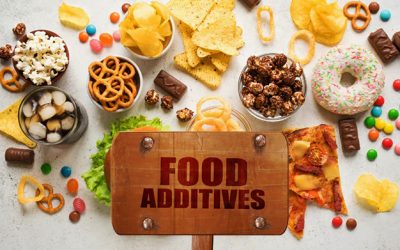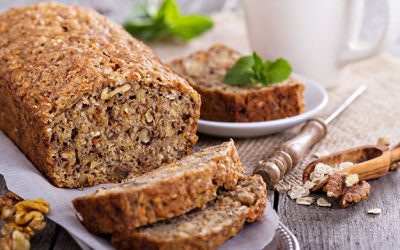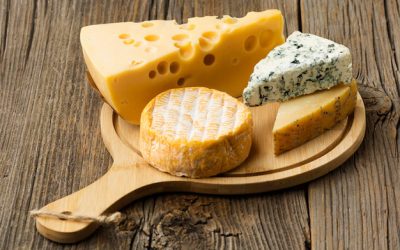Blog
The most important Important application of sodium acid pyrophosphate
Sodium acid pyrophosphate is one of the most popular chemicals, especially as a food additive. SAPP, also known as disodium pyrophosphate, is a white, water-soluble solid which has many applications in the food industry.
What is an emulsifier and what are its uses in food
Emulsifiers are food additives approved by the Food and Drug Administration that help blend products containing immiscible food ingredients such as oil and water. These materials also act as thickening agents and maintain the structure, texture, taste and shelf life of various food products.
What you need to know about food additives
Food additives are chemicals added to foods to keep them fresh or to enhance their color, flavor, or texture. They may include food colors (such as tartrazine or cochineal), flavor enhancers or a range of preservatives. The names of most food additives are listed on the product label.
Six useful types of vitamin C for healthy skin
If there is one ingredient worthy of wearing the royal mantle, it is definitely vitamin C. This hero ingredient has built a stellar reputation for fighting everything from uneven skin tones to fine lines and wrinkles. Today, having healthy skin with vitamin C is not hidden from anyone.
Fact Check: An important truth about saccharin
The safety of saccharin is one of the most discussed topics about this widely used artificial sweetener. It is a safe artificial sweetener used to replace sugar in low-calorie products. It is 200 to 800 times sweeter than sucrose and has no energy which makes it an ideal alternative.
The difference between CMC and sodium CMC
The difference between CMC and sodium CMC is that sodium CMC or sodium carboxymethyl cellulose is easily soluble in hot and cold water and is easy to store, while CMC or carboxymethyl cellulose is poorly soluble in water and difficult to maintain.
What are food preservatives
Food preservatives are additives that reduce the growth of spoilage organisms such as mold or bacteria in cooked products. They also serve to limit changes in color, texture and flavor. One of the synthetic preservatives that is completely healthy for oral consumption, unlike many other similar ones, is potassium sorbate.
Using xanthan gum in recipes and molecular cooking
The term molecular cooking was coined in 1988. They developed a way of understanding the scientific principles underlying traditional cooking methods. In this article, we will discuss the role of xanthan gum in cooking, especially molecular cooking.
Benefits and harms of trisodium citrate in food and pharmaceutical industries
The benefits of trisodium citrate in the industry are especially specific to the pharmaceutical and medical industries. This substance is widely used in medicine and food science as an aid or additive. It is also widely used in detergents and cleaners.
The difference between dextrose anhydrous and dextrose monohydrate
Dextrose is the name of simple sugar that is made from corn or wheat and is chemically identical to glucose or blood sugar. Dextrose exists in two forms: monohydrate and anhydrous. In this article we will explain the difference between the two.
The function of maltodextrin in food industry
The function of maltodextrin in food industry includes a wide range of applications. Maltodextrin is found in almost every food group, from milk powder to coffee creamers. It is created using corn starch slurry as a raw material, but it can also be produced with potatoes, oats, tapioca, wheat and rice.
Effects of lactic acid in food: good or bad
You may have heard that lactic acid is present in your body, but it is interesting to know that this substance is also present in some foods. In this article, we will examine the effects of lactic acid in food. Lactic acid is an organic acid produced by bacteria during food fermentation.
Function of distilled monoglyceride in food industry
Many cakes, such as chocolate cake, contain distilled monoglyceride, which helps create an even texture. As disaccharides are related to carbohydrates, mono and diglycerides are related to fats. Here we will tell you about the function of distilled monoglyceride
Sodium pyrophosphate in food; is it bad for you
Sodium pyrophosphate is a general term that refers to many compounds of sodium and phosphate. Food grade sodium pyrophosphate is recognized as safe for consumption by the US Food and Drug Administration(FDA). It is also an ingredient in many household products and medicines.
Can you use ammonium bicarbonate and baking soda together
Sometimes you come across an old cookbook and see a cookie recipe that calls for baking ammonia or ammonium bicarbonate. But what happens when we mix ammonium bicarbonate and baking soda? What is the reaction?
Seven reasons why ascorbic acid is essential for your body
Today, the necessity of ascorbic acid for the body is not hidden from anyone. Ascorbic acid, or vitamin C, is an essential water-soluble vitamin, meaning your body cannot produce it. However, it has many roles and is associated with significant health benefits.
According to new research, saccharin never leads to diabetes
New research at Ohio State University claims that saccharin does not cause diabetes, addressing concerns that the sweetener may be doing more harm than good and therefore, there is no direct connection between saccharin and and the onset of diabetes.
The important role of sodium carboxymethyl cellulose (CMC) in cosmetics
Sodium carboxymethylcellulose is added to food products as a viscosity modifier, thickener and emulsifier. It is also one of the most common viscous polymers used in artificial tears and has been shown to be effective in treating dry eye symptoms.
Effective applications of potassium sorbate in the food industry
Potassium sorbate is an additive that is widely used as a preservative in foods and personal care products. It is an odorless and tasteless salt that is synthetically produced from sorbic acid and potassium hydroxide. Its use as a preservative and its safety has been researched for the past fifty years.
Amazing health benefits of xanthan gum
Xanthan gum is a food additive that you may take several times a day. This food additive is common in everything from gluten-free foods to personal care products, such as toothpaste, skin moisturizers and creams. In this article, we will review some of the benefits of xanthan gum.




















